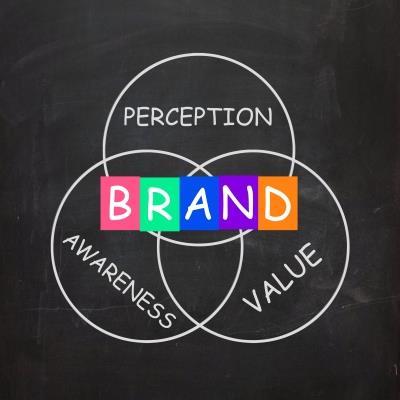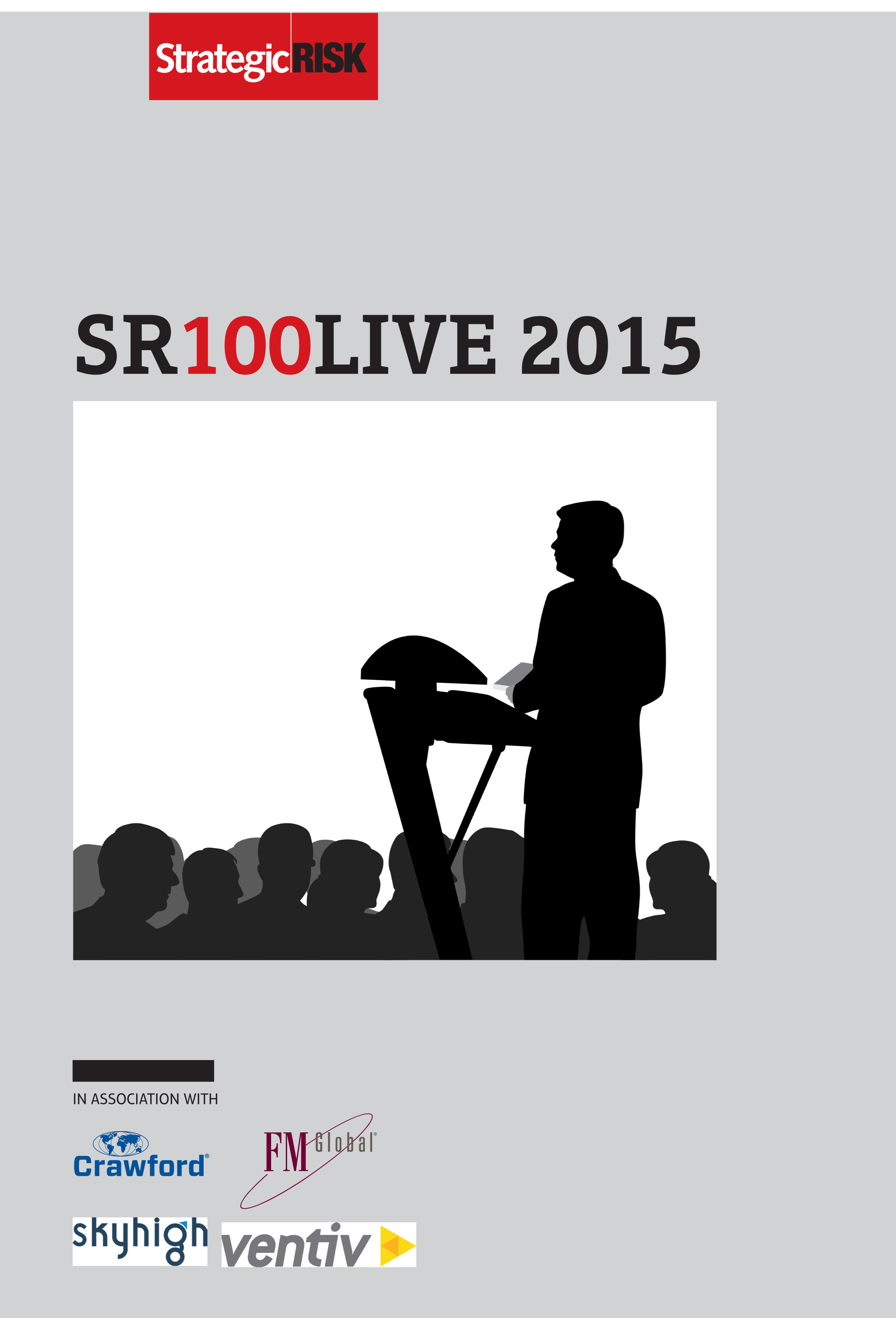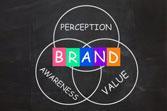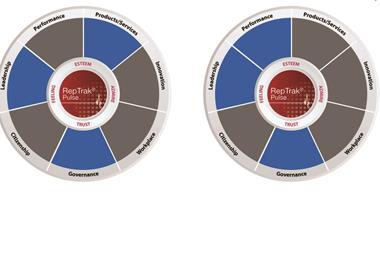In some cases, 80% of a company’s assets are intangible and the risks to these assets are greater than ever before. Read the first article in a three-part series on intangible risks

Facebook is near ubiquitous in our lives, reflected in the company’s $264.3bn market capitalisation.
Yet the social networking giant employs less than 10,000 full time employees at the last count.
By contrast while the world’s biggest car maker General Motors’ market cap weighs in at a relatively lightweight $50.7bn, its payroll dwarfs that of the social networking upstart, running to approximately 213,000 staff across the globe.
Welcome to the world of the intangible economy where a sizeable physical footprint is no longer a marker of corporate importance.
John Ludlow, director of the consultancy Leading in Risk, says: “It’s all intangible, you are hard pressed to see any assets. Even Apple don’t make their own computers, they are made by someone else in China.”
Sam Tiltman, global communications, technology & media practice leader at JLT, says: “It’s easy for a tech company to have 80% of its market value in intangibles.”
The term ‘intangible’ covers a host of assets, such as brand, data, goodwill, intellectual property and reputation. A company’s software and apps will come under the same broad umbrella.
And in the modern business world of outsourced production, franchised operations and sale and leaseback deals, it is in such nebulous assets that a company’s value will increasingly be locked up rather than in property and plant.
Mark Camillo, of AIG, says: “Some will have nothing but intangible things on their balance sheet. They will be living on future values.”
As a result, companies face a very different set of issues to those that have traditionally vexed risk managers. Reputation risk in particular is rising fast up the boardroom agenda.
When Hanna Basha, a partner at solicitors Hill Dickinson, started work yesterday’s news literally was tomorrow’s fish and chip paper. This meant bad press had a much more limited shelf life than it does in the age of Google, where corporate misdemeanours and mistakes linger on in cyberspace. And social media firestorms can shred carefully burnished corporate reputations in a matter of days or even hours.
Camillo says: “From a board perspective, it’s the major consideration: people are less likely to shop at the website or do business with the organisation with all the long- term damage that represents,”
Companies are responding, Basha says: “Boardrooms are taking their reputation a lot more seriously than they did five to ten years ago.”
Max Perkins, senior vice president in the global technology & privacy practice at brokers Lockton agrees: “In the last six months there’s been a real push from clients around intangible risks, underwriters are now developing products in the intangible risks space that go well beyond cyber insurance.”
But this new world poses challenges for those raised in the old world of tangible risks.
What risk managers can do about intangibles
Julia Graham, technical director at Airmic, says: “One of the big issues for us is that we need new knowledge and skills to be able to deal with them.”
As a starting point, she says, risk managers will need to make sure that intangible items are given due weight when the company’s risk register is being updated.
The nature of reputation risks means that they must be addressed across the business, argues Ludlow: “Companies have been fairly siloed traditionally. Reputation has been seen as the territory of corporate communications, but it is the core asset for a lot of companies so it cuts across the whole business.”
In a similar vein, Godfrey adds that insurers and risks managers need to work closer together.
For risk managers, this means being more plugged into corporate decision making structures than they have often been traditionally.
Perkins says: “The underwriter needs to know what the board is concerned about which requires more work by the risk manager.”
“The risk managers can’t answer all the questions themselves: they have to get the team on board.”
The Intangible Risks Briefing: exclusive event for SR100LIVE members
StrategicRISK is holding an exclusive event to delve deeper into challenges of managing intangible risks.
The Intangible Risks Briefing, for members of SR100LIVE, will bring together 100 leading UK & European risk minds, to explore ways to identify, quantify and mitigate against risks to intangible assets, including protecting Intellectual Property, developing Cyber Risk management programmes and managing Reputation Risk.
The Intangible Risks Briefing, the first in a series of quarterly SR100LIVE events, has been structured to provide leading insurance and risk professionals with a strategic agenda and the opportunity to meet, network and share knowledge with their peers, as well as hearing from leading experts.
For further information, click here:
How brokers can help
And while brokers can offer a broader perspective on practice and solutions, Perkins believes the client is best placed to name the perils that threaten to capsize their companies.
The good news is that major IT security breaches, like those which have afflicted Sony and US retailer Target in recent years, mean that companies are increasingly switching on to intangible risks.
Basha says: “Once they have been through a crisis they realise they don’t want to go through it again: that’s the time they will start auditing their reputation risks.”
Another issue is that intangible risks are inherently more slippery to quantify than traditional risks, like property where insurers can draw on three centuries of underwriting history. “It’s a much more subjective analysis,” says JLT’s Tiltman.
What insurers are offering
Intangible risks are often hard to fit inside the straightjackets of the lines of business used by the insurance industry, he adds: “Intangible risks by their nature can propagate across multiple policies.”
Some risks will, Godfrey acknowledges, be hard if not impossible to insure against. But obstacles like these have never prevented the insurance industry from pursuing innovative solutions.
Tiltman says niche Lloyd’s insurers are starting to offer cover for companies against the falls in turnover that reputational hits may trigger.
He adds that he has even been asked about whether it is possible to insure against share price volatility resulting from reputational damage.
Basha says it may be possible to construct triggers for such policies. One such trigger event could be a libel action: under the UK’s 2013 Defamation Act, any company which sues has to prove that it has suffered a financial loss.
Rather than enter into these kind of highly complex insurance arrangements though, most companies are guarding themselves against reputational risks by buying crisis management policies.
AIG’s Camillo describes what such policies may include: “The focus is on helping clients to avoid breaches in the first place, such as giving hardware that gets updated every ten minutes with latest known bad IP addresses.”
Other policies will furnish a fighting fund, providing the kind of public relations and legal resources that all but the biggest blue chips will struggle to muster in house. This kind of policy is especially attractive to smaller companies, says Ludlow.
And a fast response is important.
Camillo says: “If the client responds quickly with appropriate legal expertise, it is less likely for a law suit to develop: speed is critical when responding to these kind of situations.”
Basha agrees: “If you don’t deal with it (the crisis) effectively, you will have problems. You should be able to deal with it without having to pay a lot on legal costs. Two weeks later it’s a lot more difficult and you may have to launch a libel claim. If you get it at the beginning you can nip it in the bud quite quickly.”
In addition, risk managers need to widen the networks of experts who they draw on, Godfrey adds. .
Tiltman believes that the insurance industry too needs to evolve rapidly to keep up with the rapidly evolving nature of the economy.
Part of the answer is for insurers to develop the same kind of deep understanding of reputational issues that they currently possess in more traditional areas of risk, like climate and geology. “They need to do something similar for intangible risks such as intellectual property and brand experts,” he says, suggesting that the industry could second staff from agencies operating in cutting edge areas like brand reputation.
The risk for the industry, Tiltman warns, is that if they do not evolve, the industry will be outpaced by wider economic changes. “The industry might die out if it’s no longer relevant to clients’ risks. It’s no good shrugging shoulders and saying it’s too hard.”




















No comments yet